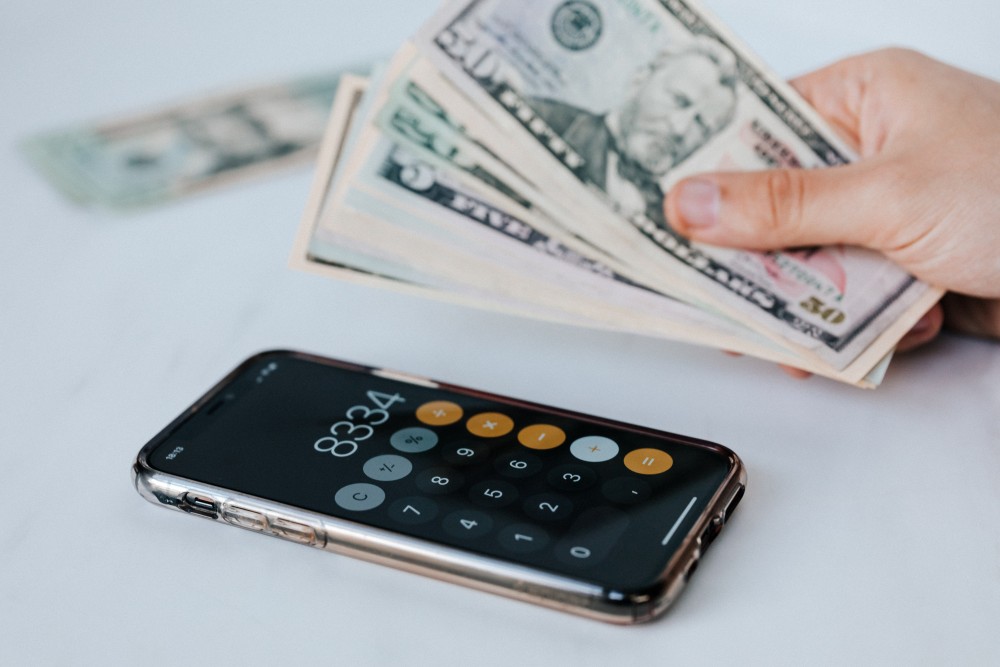What is a Debt? It seems to give a negative impression. Sometimes it even gives some people a chill just hearing this word. The dictionary, both layman and business, defines debt as something which someone gave permission to borrow but with the condition to repay back. From a business dictionary perspective, a debt is usually taken to perchance large transactions that they could not afford under normal circumstances. Now when it comes to organisations around the world, debt is an engine. Use of debt in an organization’s financial structure creates financial leverage that can multiply yield on investment provided returns generated by debt exceed its cost. Because the interest paid on debt can be written off as an expense, debt is normally the cheapest type of long-term financing. So looking at this, is debt a good thing? Does a debt puts you in a better position or worse? Does a debt makes you richer or poorer? The answer to this is…… It depends!
There are many types of debts. There are many reasons why people take on a debt. People may incur debt because of an emergency, a large purchase made earlier, to improve one’s lifestyle and, a mode of investment and etc. Yes my friend, people and organizations use debts to grow. Let’s dive deep into how debts puts you in a worst off situation, and what is actually a good debt.
POOR DEBT
In the world that we live in today, especially for middle class employees, it always seems that the cost of living is picking up faster than what we earn from our pay cheques. Despite this, we have seen tremendous growth in lifestyle expenditure. The unfortunate part of this culture is that it has created a lot of debts which makes people poor. Let’s take credit cards as an example. An average of 40% of customers today revolve (never pay credit card spending in full every month) on their credit cards. It is shocking that this has grown from only 25% more than a decade back. When you spend beyond your means and revolve unnecessarily, especially on lifestyle expenditure, you are paying as high as 18% annual interest. To make matters worse, most of these expenses depreciate over time.
Personal loans are another form of new age credit facilities which has an attractive easy cash access with no security pledged or charged. Many have been attracted to the sudden access to large volumes of cash which can be used for anything at all. This is another lending that gives an after effect of possibly one week of pure enjoyment and up to 5-7 years of painful commitment. A commitment that after a while you may ask yourself; was it even worth it.
Credit card and personal loan debt is one of the most expensive debt in the market. Please see below on the comparison of the interest rate based on EIR (effective lending rate).
Personal Loan – 16%-24%
Credit Card – 15%-18%
Car Loan – 7%-8%
Mortgage – 4.5%-5%
People who get stuck in expensive debts ie Personal Loans and Credit Cards will eventually become poorer and poorer. Let me show you how this works:
You get continuously stuck in an expensive debt trap
You see that your debts have continued to pile up with no way to get out of it
You are trying to have it all but have no financial roadmap
Your money is being spent faster than being used to make more money
You continue to ignore big debts
You continuously pay debts which you can then incur more debts
You buy depreciating items
You put today’s happiness before future Financial freedom
You incur debts that gives you short term happiness and that does not work hard to grow your wealth for the future
You invest on other things instead of yourself.
You are spending too much on housing
This refers to your own house. You invest heavily into your house where lifestyle expenditure on it exceeds the current market value of the property.
According to Robert Kiyosaki (author of Rich Dad, Poor Dad), wealth is measured in time. If you were to lose your job today, how long could you afford to live at your current standard of living? If it’s 3 months, then you are “3 months wealthy.” Your income becomes largely irrelevant.
In short, a poor debt is basically using any future income to pay for past expenses.
RICH DEBT
Let’s look at debts that can actually make some of you richer.
Imagine this.
- Catherine buys an asset worth RM1mil, and after 3 years, she sells it off for RM1.2mil and makes a handsome profit of 20%. She has the cash to pay the entire asset of RM1mil but she chooses not too. She initially took a loan that financed 90% of this asset. Her capital outlay is only RM100,000. After 3 years, her property is potentially worth RM1.2mil.
- Tommy buys the same asset worth RM1mil, and after 3 years, he too has the potential to sell it off for RM1.2mil making a handsome profit of 20%. He too has the cash to pay the entire asset of RM1mil in cash and decides not to take a mortgage for it. After 3 years, his property is potentially worth RM1.2mil.
What do we see above? Who is a smarter investor? Who makes more money? Who is financially more resilient?
Here are some observations to ponder
Catherine only used RM100,000 to make RM200,000 over 3 years.
Tommy on the other hand used RM1Mil to make RM200,000 over 3 years.
Catherine has a remaining RM900,000 in her banking account for any life emergencies she might have. She can also continue to invest when the opportunity arises.
Tommy on the other hand does not have this advantage.
In simple terms, your RM100,000 investment has given you a return of RM200,000 over 3 years. Doesn’t that make more financial sense? Catherine has successfully leveraged her way for higher gains.
Many of us know that property is one of the safest investment journey’s one can take and make money over time. But it only makes sense if the initial cost of investment is pushed to the minimal such as a low down payment on a property, while the benefit of appreciation and capital gains are based on the total value of the property.
WHAT IS LEVERAGING?
By definition, leveraging is any process that compounds risk. In the context of investing, leveraging is the process of using borrowed money (someone else’s money) to make money. A mortgage is a cost-effective way of borrowing. Interest rates on mortgages is no doubt the cheapest form of borrowing available in the market simply because the loan is secured against your property. You are essentially using other people’s money (the mortgage) to purchase something (property) which increases in value over time.
What this has created is that you are now boosting your wealth with effective returns. Just as the example of Catherine and Tommy. But, what about paying for monthly instalments? Is that still a bad debt? Alternatively, leveraging can be a means of force savings too. The difference is you would invest a lump sum of borrowed money and your money would start working immediately. On a monthly basis, you would be paying the interest instead. Any way you do it, forced savings is essential to building wealth.
On top of that let’s look at it from a financial security stand point. While there is a certain sense of security that comes from paying off your mortgage, there is security too in having cash in the bank because you have a mortgage on your home instead of paying all cash. Life is fraught with rainy days–from car breakdowns to illness and job loss–and every one of them is costly. You will be in a much better position to weather economic storms with a mortgage than without, assuming you have put money aside. This money would become handy in needy times and are not locked into your investment.
On the other hand, taking up a mortgage and freeing up existing cash flow has another benefit. There could be a future opportunity which you may come across. The value of opportunity may be difficult to define but it is certainly real. If a once-in-a-lifetime business opportunity arises overnight, would you be able to take advantage of it if your money has gone to pay off your mortgage or purchase a property without a mortgage? You might be saving a great deal of money by avoiding mortgage interests but that might pale in comparison to what you could make in a business venture. It could be a new business opportunity or it could be another new property investment opportunity.
BORROWING IS NOT NEW
Think about it, you borrow money everyday. We borrow to buy our homes, we borrow to buy depreciating assets like cars and we also borrow to buy items that have no value like consumer goods (via credit card). Most of the time we borrow to do things that are not financially productive. Leveraging can be incredibly productive when it is understood and used properly.
Even corporations understand this is the right way to do it. Many large companies have the cash to pay off debt but they do not. They understand the power of leverage. In fact, most companies are highly leveraged! Why? They raise public debt in the form of bonds at 8% and turn around to make 15% on that money. They have it figured out.
Why can’t individuals do the same? We certainly can! Equip yourself with the right financial knowledge and start using mortgages as a wealth creation tool. A mortgage is not necessarily a bad thing. It can be used as arbitrage to leverage what you don’t have and yet benefit base on the total current value of the property when it appreciates over time. The key here is mortgage allows us to leverage and leverage allows us to Do More with Less!!
Be a SMART investor, pay off the Poor Debt and start accumulating Rich Debt today!







